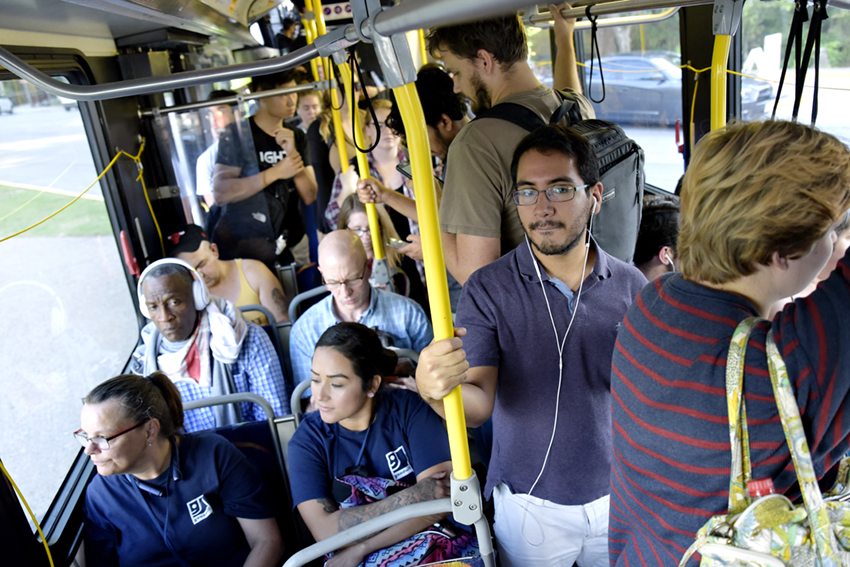After venturing from campus for the first time her sophomore year, Hannah Burbank quickly realized she was sitting on a bus that was taking her anywhere but where she wanted to go. For those new to navigating Austin, it’s not uncommon to experience similar issues while learning to traverse the city efficiently.
“I remember it was right before classes started, and I wanted to make sure I knew what bus to take,” journalism junior Burbank said. “I took the right bus, but I took it in the wrong direction. I didn’t have a car. I didn’t know where I was going … It was disastrous.”
Even for those who are used to Austin’s infrastructure, understanding its more than 70 bus routes, inconsistent bike lanes and limited parking can be complicated.
Despite now having a car, Burbank said she will continue to walk or take the bus to class because on-campus parking passes are so expensive. According to the UT Parking and Transporation Services website, on-campus parking passes can cost anywhere from $150 to $861 for the 2019-’20 school year.
Other car-owning students, such as religious studies junior Gerard Apruzzese, also doesn’t park on campus due to the expense of UT passes. To get to class, Apruzzese said he drives into West Campus and from his home near 38th Street, then parks in the garage of a friend’s apartment building.
“I think that UT’s parking passes … should be more accessible,” Apruzzese said. “People usually live farther off campus because it’s cheaper. It doesn’t make sense that UT would make the prices so expensive knowing that the people who need it are more likely to be economically disadvantaged.”
Instead of parking on campus, students can ride a bike or scooter, call an Uber or Lyft or take various bus routes around campus, including Route 640, which loops around campus. Students can ride city buses for free by swiping their UT ID. Between the hours of 11 p.m. and 4 a.m., students can order a free Lyft ride home from campus through the Night Rides program.
Robert Quigley, journalism associate professor of practice, said he prefers to walk and take bus routes around town. He said he recommends downloading the CapMetro app because the bus is cheaper than other options and is also a great way to catch up on work, reading or video games.
“It’s a nice thing that UT does for faculty, (staff and students),” Quigley said. “I’m so glad UT pays for the metro.”



















